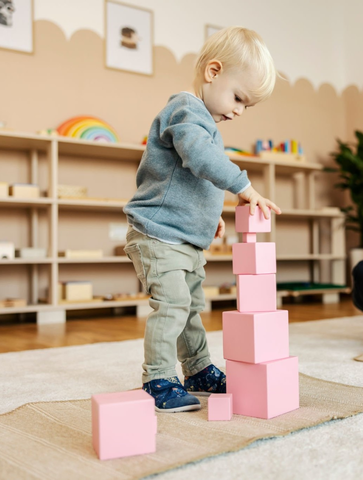
Parenting Tip: Mastering the Morning Routine
Mornings with children can feel like running a marathon before you’ve even had your first sip of coffee. Shoes go missing, breakfast takes forever, and the clock seems to tick faster than ever. But the truth is: mornings don’t have to feel like chaos. With a little structure and preparation, they can become smoother, calmer, and even enjoyable—setting the tone for the whole day ahead.
1. Prepare the Night Before
The most effective morning routines actually begin in the evening. Taking just 10–15 minutes the night before can save you from morning stress. Lay out clothes, pack school bags, and check that homework, lunch boxes, and permission slips are ready to go. Even young children can be part of this preparation—choosing their outfit, putting shoes by the door, or helping prepare snacks for the next day.
💡 Why it matters: Children who participate in these small tasks learn independence and responsibility. And parents get to sleep a little more soundly knowing nothing has been forgotten.
2. Keep Breakfast Simple
A nutritious breakfast doesn’t need to be elaborate or time-consuming. Rotate between a few reliable favorites—like oatmeal with fruit, whole-grain toast with nut butter, or yogurt with granola. Keeping it simple removes the daily “What’s for breakfast?” negotiation and ensures kids start the day with steady energy.
💡 Tip: Create a “breakfast station” in your kitchen with easy-to-grab options. Older children can even serve themselves, building self-sufficiency.
3. Use a Visual Schedule
Children thrive on routine and clear expectations. A simple chart with pictures—wake up, brush teeth, get dressed, eat breakfast, put on shoes—helps even the youngest child know what comes next. Turning tasks into a “checklist” makes it fun, motivating, and reduces the need for constant verbal reminders.
💡 Why it works: Kids feel more in control when they can see the plan, and parents don’t need to play “drill sergeant” every morning.
4. Build in Extra Time
No matter how well-prepared you are, life with children is unpredictable. A small cushion of 10–15 minutes gives you breathing room for those inevitable surprises—a spilled juice, a misplaced toy, or an extra-long shoe-tying session.
💡 Psychology insight: When parents are calm, children tend to stay calm too. A rushed atmosphere increases stress for everyone, while a bit of extra time allows for patience and flexibility.
5. Add a Positive Ritual
Mornings don’t have to be purely functional. A small ritual can turn them into a moment of connection and joy. This might be a cheerful song while brushing teeth, a quick family stretch in the living room, or a few encouraging words before heading out the door.
💡 Long-term benefit: These rituals create positive associations with mornings and become small memories that children carry with them well beyond childhood.
Final Thoughts
Even with the best routines, some mornings will go off track—and that’s perfectly normal. A bad night’s sleep, a lost item, or just a cranky mood can throw off the plan. The key is consistency over time. Children adapt best when the structure is steady, even if it doesn’t work out perfectly every day. A smooth morning not only sets kids up for a successful school day but also helps parents step into theirs with a sense of balance and calm. So tomorrow morning, when the sock goes missing or the cereal box tips over, take a breath. With preparation, patience, and a few joyful rituals, mornings can shift from chaotic sprints into gentle, positive starts. 🌿





